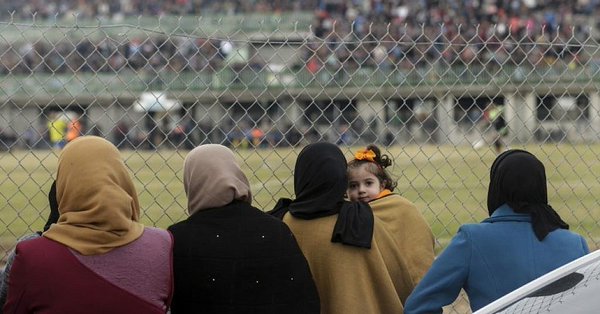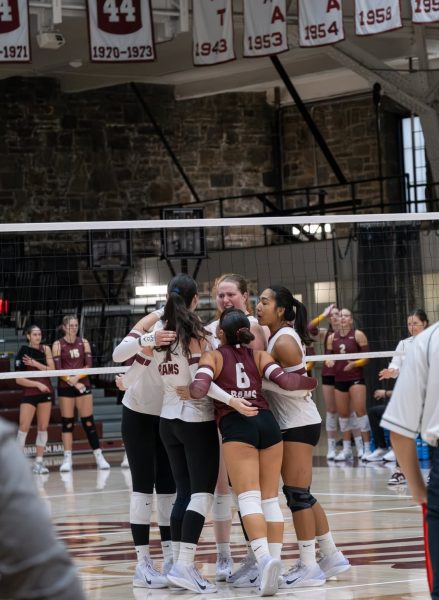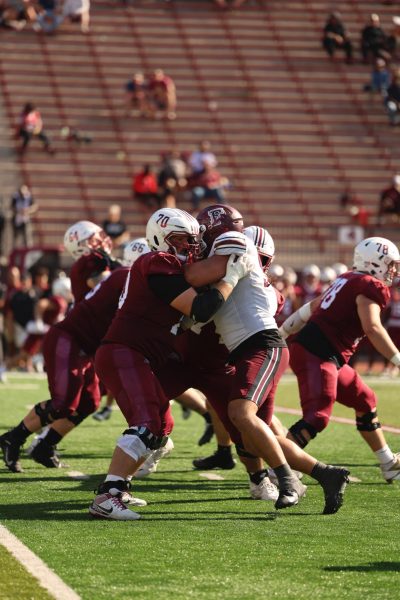Women and Soccer on the Gaza Strip

Women watch a soccer match from behind a chain link fence. (Courtesy of The Times of Israel)
By Andrew Posadas
If you’ve ever been to a soccer game in the States, you’ll find the spectators vary in race, age and gender. Men, women and children are all welcomed to watch the sport that is universally recognized as the most popular in our world today. You can sit wherever you want with whoever you want. This is something you shouldn’t take for granted, especially after news out of Gaza City surfaced that women were denied entry into a local soccer game this past Sunday.
The Gaza Strip is currently under control by the Islamic terrorist group Hamas. According to The Times of Israel, activists were hopeful that women would be permitted to attend a soccer game for the first time since Hamas’s rule began. Instead, all women walking into the stadium gate were met by police. These authorities, under Hamas influence, notified the group of females that their orders were to prevent any woman from entering the stadium. Some women ended up leaving, disappointed in being turned away as a spectator. Others decided to stay and watch the game.
However, their view was obstructed for the whole match. What was in their way? The chain-link fence that went around the entire stadium. Now, some may say that they’ve watched games from behind a fence before with no problem. To those people, I’d say: of course, you had no problem. You had no issue because at any point during the game, you could walk up to the gate and go inside to find a better seat. Imagine having to watch a soccer game behind a fence, not because you want to, but because you must.
One female turned away from viewing the match, Ayat Othman, told the AFP of the women’s intentions today attempting to attend Sunday’s game. “We came here to encourage the team and youths in Nuseirat and watch the game, but we were surprised by the presence of Hamas security guards who closed the gates in our faces and did not allow us to go inside to cheer,” Othman said.
Up until today, only women and girls that were related to the players were allowed entry into soccer matches in Gaza. In an effort to improve public relations for sports in Nuseirat, the plan Sunday afternoon was to allow any and all Hamas women in the stadium to spectate. According to Farid Abu Yusuf, head of Al-Nuseirat’s soccer club, the team had hopes that women would attend and even prepared a separate section for female fans.
Even though female spectatorship was supported by one of the competing teams, it is still concerning to know that even if those women could have watched Sunday’s game, they would have had to be in their own area away from everyone else. Hamas interprets Islamic law to prohibit the fraternizing of males and females in public places, and strongly enforces this belief in the Gaza Strip. It’s a shame to know that men and women can’t even socialize at the most basic events, namely sports matches.
In instances like these, the outcome of this game is irrelevant. I don’t care who ended up winning the game. I don’t care if there were any highlight plays worthy of ESPN recognition. What matters is how behind certain parts of the world are with social issues. Soccer is known as the biggest global sport in the world, something everyone enjoys. Together. How can people come together if they are separated in something as simple as a game of soccer?
I leave you with this scenario: You’re going to a soccer game with your husband or wife and your two children: a son and daughter. You get to the stadium and as you make your way to the entrance, the security guard in front of you rips the ticket stubs, gives them back to you and proceeds to say, “The men are seated on this side. The women are seated on that side.”
The question now looms heavy: What do you do?














































































































































































































